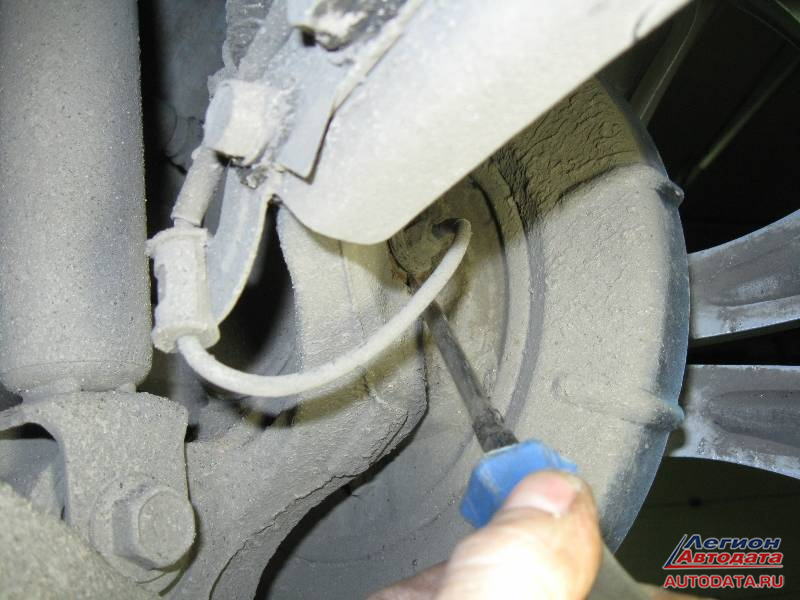
Symptoms of a Faulty or Faulty ABS Speed Sensor
Content
Common symptoms include the ABS light coming on, reduced stopping time, and poor driving stability when driving on icy or wet roads.
The anti-lock braking system (ABS) uses sensors that send data to the ABS module, which activates it when the wheels lock. These sensor mechanisms are mounted on the steering wheel and usually consist of two components. The axle will have a brake wheel or tone ring that will rotate with the wheel, and a magnetic or hall effect sensor that work together to send data to the ABS control module. Over time, the reflex wheel may become dirty or damaged to the point where it can no longer provide stable readings, or the magnetic/Hall effect sensor may fail. If any of these components fail, the ABS system will not function properly and will require service.
Different vehicles will have different ABS sensor configurations. Older vehicles may only have one or two sensors on the entire vehicle, while most newer vehicles will have one on each wheel. Separate sensors on each wheel provide more accurate readings and performance, however this makes the system more prone to problems. When an ABS sensor fails, there are usually several warning signs to alert you that there is a problem.
1. The ABS indicator lights up
The most obvious sign of a problem with the ABS system is the ABS light coming on. The ABS light is the equivalent of the Check Engine light, except for the ABS only. When the light is on, this is usually the first symptom to be displayed, indicating that there may be a problem with the ABS system and possibly a problem with one of the system's sensors.
2. The brakes take longer to stop the car.
Under hard braking conditions, the ABS system should automatically activate to slow the vehicle, and loss of traction and skidding should be minimal. Although we should try to practice normal driving habits avoiding hard braking situations, if you notice that the vehicle takes longer to stop under hard braking, or there is loss of traction and skidding, then this may be a sign that there is a problem. with the system. The ABS system usually consists of only a few components - the module and sensors, so the problem in its operation will be associated with either the module or the sensors.
3. Less stability in icy or wet conditions.
Over time, most drivers learn how their car behaves under certain conditions, including slippery roads such as driving on wet or icy roads. A properly functioning ABS system will minimize any loss of traction, especially in wet and icy conditions. If you experience any tire slippage or loss of traction for more than a short moment when stopping or starting off while driving on wet or icy roads, the ABS system may not be working properly. This is usually due to a problem with the module, or more likely due to a problem with the sensors.
If the ABS light comes on or you suspect that you may have a problem with one or more of the ABS sensors, have your vehicle checked out by a professional technician such as AvtoTachki to determine the exact nature of the problem and if repairs are needed. They will also be able to replace your ABS sensors if needed.